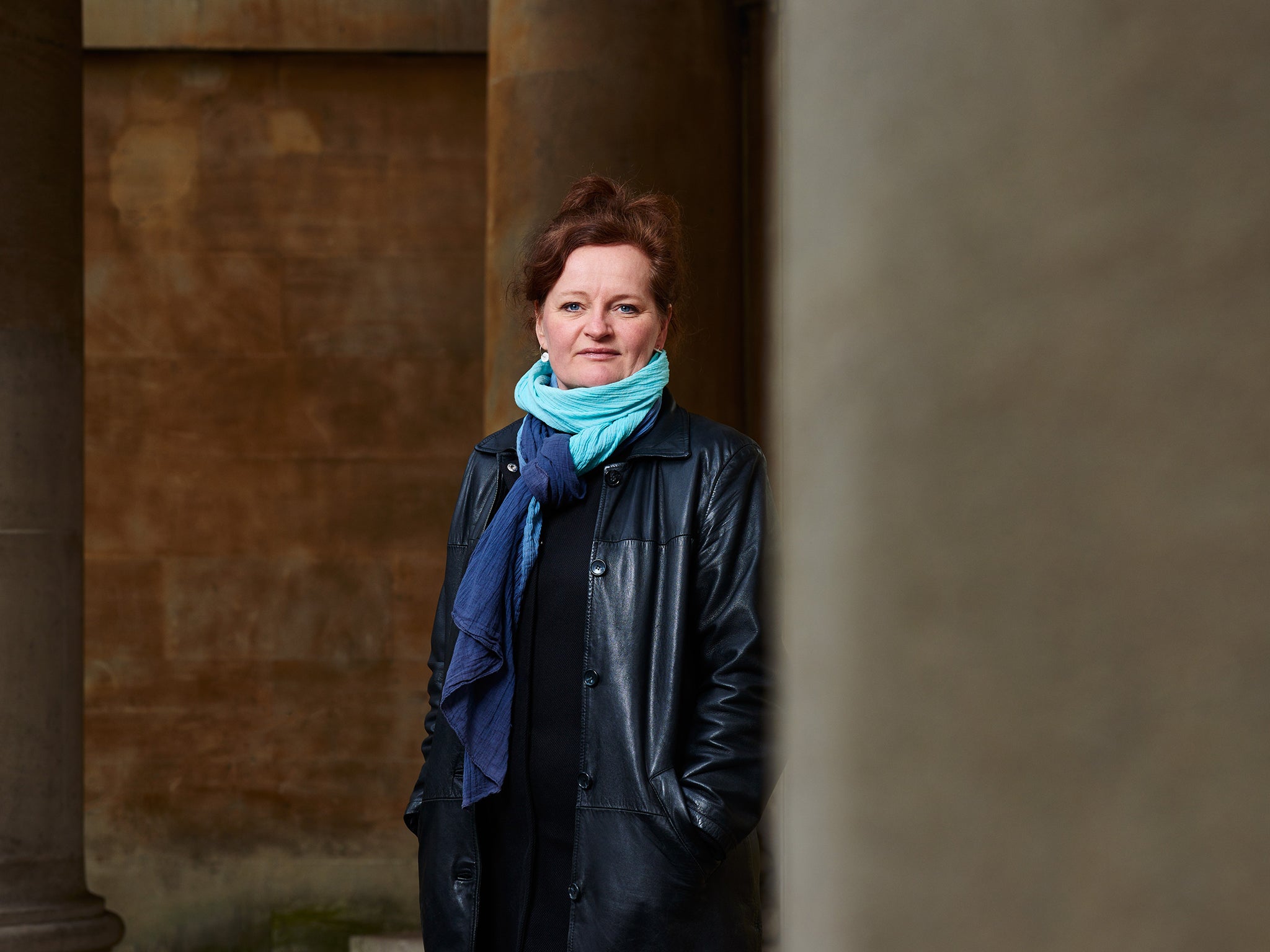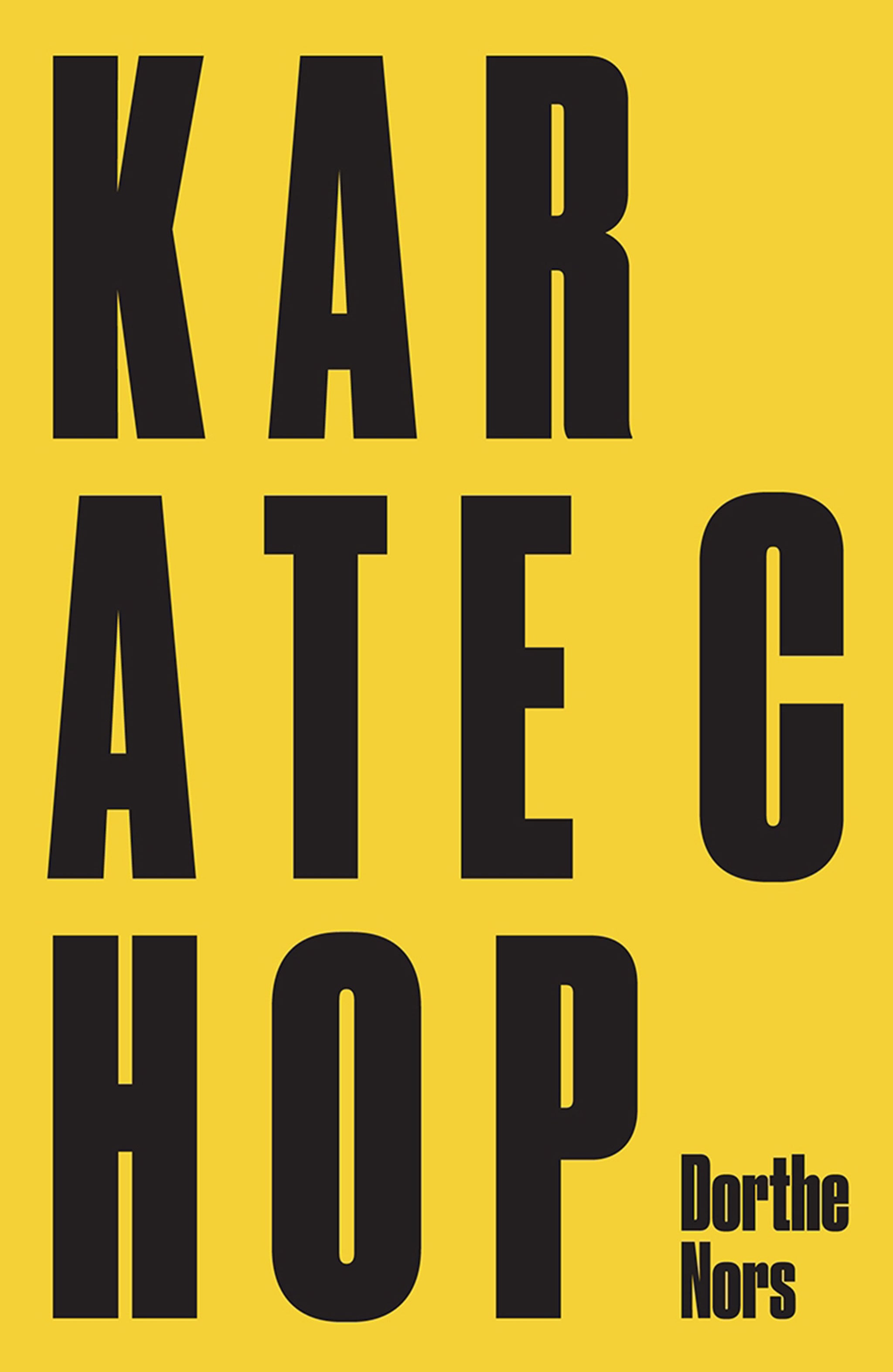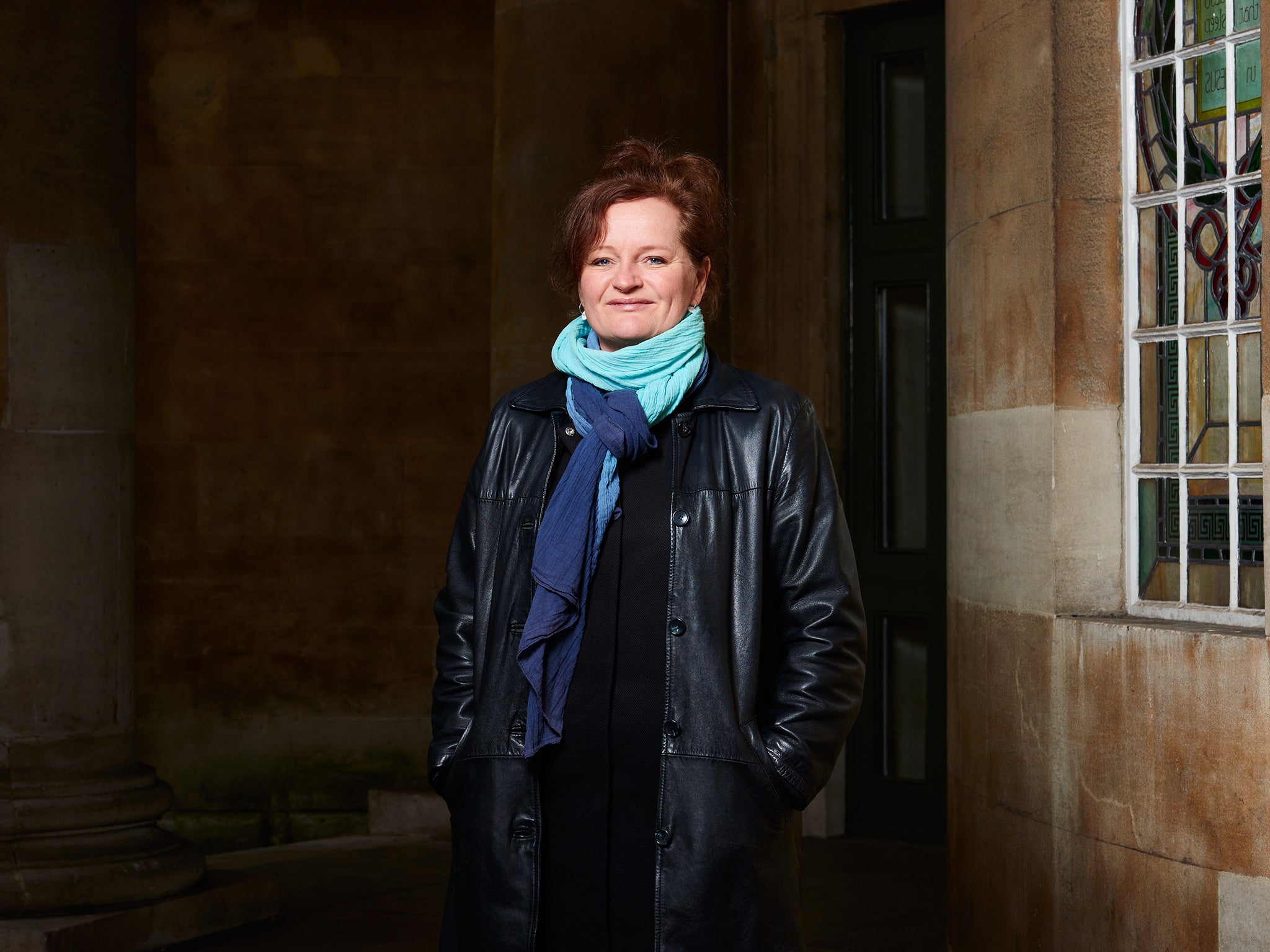Dorthe Nors: 'You can't escape your own existence. But you're not supposed to say that in Denmark'
The queen of the nordic short story spills Denmark’s dark secret

Bottles of gløgg frame Dorthe Nors’s head behind her perch on a bench, snug inside London’s Scandinavian Kitchen.
If the Danish author’s entry to the British publishing market goes well, she can toast her success with the cheap post-Christmas mulled wine. But, for now, she’s happy to make more metaphorical use of the Swedish beverage, which lines the shelves of the café-cum-supermarket.
Her prose, like the selection of groceries, “is Scandinavian”, mixing Swedish and Danish literary tradition. “I write minimalism that is under attack from within. I was trained in the Swedish tradition where existential structures are very important. Swedish form is bigger than the Danish. But I combine these. There’s always something bursting out of this very tight structure. It’s like an elephant in a very cool Danish chair, a [Hans] Wegner, or an Arne Jacobsen.”
I’d worried that lumping Nors, who is a big deal in her native country, in with the rest of her region, which can blur into one design-obsessed mass for many Brits, would be an affront, but she’s “touched” by my choice of café. “I was in Denmark yesterday so it’s not as though I miss this. But you always get happy to see these things outside your back yard.” Plus, she admits the Scandinavian countries are all “so connected” they’re like one big family. That means more similarities than differences, notably the bleak plots that have made nordic noir dramas Saturday evening staples in many British households.
"Karate Chop", her short story collection out next month, is typically dark. Break-ups, suicides, serial killers, missing fathers: all get an airing as Nors, 44, romps through the gamut of human emotions in triple-quick time, each tale getting the scantiest handful of pages. Her words whip along, each idea cascading into the next: it’s like having a window into someone’s thoughts and makes for a stimulating, if exhausting, read. She likens each story to “a song; a voice coming out of the mist, and telling a bit of their narrative, like a memory, and then withdrawing.”
The darkness comes, she thinks, from the landscape and those long winter nights. “The further up north, and into Finland, the darker it gets, the darker the literature. In that respect, the Danes are the lighter ones, with the irony, sarcasm, humour and playfulness. But still the darkness is there in Danish literature. It comes from the seven or eight months a year that we have to be introverts because of how nature acts. There is a lot of introspective thinking coming from that. Then we have these hysterically light summers, when we become Italians. It turns us into bipolar people because one end of the year we’re never sleeping and we’re out there all the time, and we’re running naked, and we’re picking flowers, and we’re ecstatic, and then it’s winter and we become completely introvert, which makes us a strange culture.”
Stranger still, perhaps, is how that culture – despite those winters – has earned Denmark a reputation for being the world’s happiest country. Or so says the United Nations, which ranked Britain in 22nd place. But Nors won’t hear of it. “We’re fortunate if you look at the welfare system, and there isn’t a great difference between poor and rich. But nobody escapes living their lives, not even if you live in the happiest place in the universe, or the saddest. You still lose the ones you love. You still get ill. You can’t escape your own existence. But you’re not supposed to say that in Denmark. And I think that sometimes makes us a little bit unhappy.”

Worse yet: “Nobody dares to say they’re not happy any more. It’s because we’re a tribe. There are five million Danes and we all know each other. If somebody says they’re not happy we know where they live. It’s bullshit. Where does all the heartache go? Where do you hide that heartache? People get unhappy but they’re ashamed to admit it.”
Nors uses this anomaly to clever effect in one of her short stories, “The Heron”, published in The New Yorker, which is set in Copenhagen’s most popular park, Frederiksberg Gardens. “People go there to display how happy they are. When children have birthdays, I tell you, you pass [picnics] where the family has gone haywire to show the world how happy they are. There are little flags and cakes. You think, ‘Oh my God. The responsibility this kid has to make the whole thing look happy’. At the same time there are all these dark sides to society that we don’t want to acknowledge, and also the dark sides to family life that are not supposed to be out there.”
In Nors’s hands, mothers in “The Heron” have “stony faces and big baby carriages”, arriving in “flocks, great flocks of mothers, and they stir up bad feelings in one another, so none of them will even look at you when you walk past”. The poor heron, meanwhile, sits “tired and sallow in his gaze, smelling of the mites that lived in its under-feathers.”
Smiling over her coffee, she adds: “That was just really interesting, portraying how desperate we are to be seen as happy, because that is to be successful. ‘I’m happy, My kids are doing well; I’m looking good. Don’t see me crying’.”
In today’s always-on-show world of constant online crowing, it is becoming harder to retreat, an idea that Nors explores in Minna Needs Rehearsal Space, a novella that bookends the short stories. Minna is suffering a crisis of identity triggered by the pressure to conform, a very Danish neurosis.

“She’s under pressure from other people in this culture wanting her to align and become like they are. So her individuality suffers. There’s one place where she says, ‘I’m an individual, like thousands and billions of other individuals, which means we’re a mass culture of individuals. We’re not individuals at all.’”
Nors makes her point by writing the entire 90 pages in status updates, like an old-school Facebook timeline. She wanted to know what people are missing by speaking only in headlines. “Can we still tell a profound and deep and strange story about ourselves? Can we still express all the weirdness that is going on in our lives? The sorrows and the joys and the contradictions?” It makes for a pacy and unusual read, which she says was “incredibly funny” to write. “It was a little game I had with myself. How many ways can I deepen the people around her if they’re all speaking in headlines?”
Like Minna (“she’s very much my alter ego”), Nors has found her own space away from Copenhagen’s literati. She recently moved back to her native West Jutland, a sparsely populated expanse of beaches, fields and the space to write. Not to mention all that darkness during the Danish winters. Something tells me Nors will be making the most of that gloom in her books to come.
'Karate Chop & Minna Needs Rehearsal Space' by Dorthe Nors is published by Pushkin Press on 5th March
Join our commenting forum
Join thought-provoking conversations, follow other Independent readers and see their replies
Comments